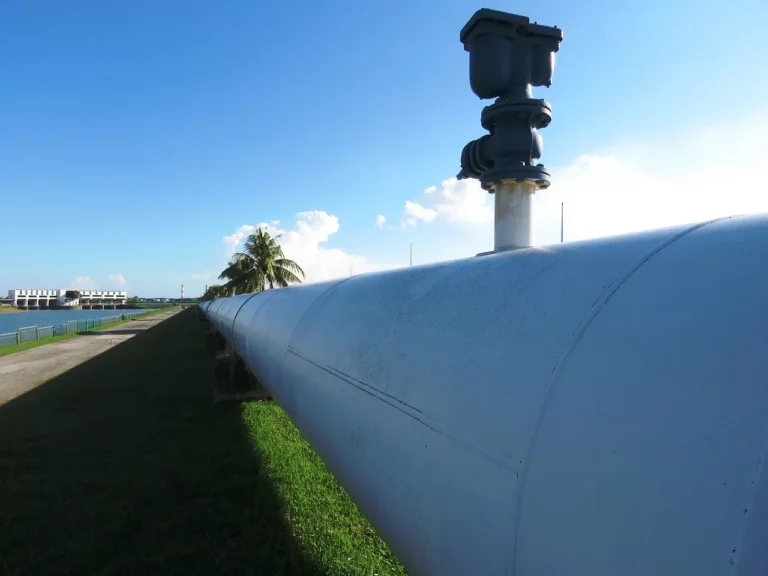
Aviation fuel production takes a sustainable turn as Terviva partners with Idemitsu to scale Pongamia.
Aviation fuel Terviva, Inc., an agricultural innovation company, has announced a strategic partnership and investment from Idemitsu Kosan Co., Ltd (Idemitsu), a leading integrated energy company. This collaboration marks a significant milestone in the advancement of sustainable aviation fuel (SAF) production, leveraging Terviva’s expertise in pongamia cultivation and Idemitsu’s extensive knowledge of fuel production. The partnership also involves Stanmore, an Australian coal resource company, in establishing a trial plantation of Terviva’s pongamia trees in Queensland, Australia. This trial aims to explore the feasibility of scaling pongamia as a feedstock for SAF while addressing the growing global demand for low-carbon energy solutions.
Strategic Partnership to Advance SAF Production
Aviation fuel The collaboration combines Terviva’s innovative pongamia technology with Idemitsu’s fuel production expertise to accelerate the global production of SAF. By utilizing oil from pongamia beans, Terviva and Idemitsu aim to create a scalable and sustainable solution to meet the aviation industry’s decarbonization goals. Pongamia oil, derived from the seeds of the resilient pongamia tree, is recognized as a high-potential feedstock for SAF production using Hydroprocessed Esters and Fatty Acids (HEFA) technology.
Through this trial, Idemitsu Kosan seeks to gain insights into cultivating pongamia in non-traditional cropping areas while optimizing the supply chain for SAF production. The project also opens avenues for generating carbon credits through afforestation, producing biomass power plant pellets from pongamia shells, and utilizing pressed seed pomace as livestock feed. This holistic approach not only supports SAF production but also diversifies the economic potential of pongamia as a crop.

Pongamia: A Sustainable Feedstock for SAF
Pongamia has emerged as a promising crop for addressing sustainability challenges in agriculture and energy. Known for its resilience and ability to thrive in marginal soils, pongamia offers multiple benefits, including high oil yield, carbon sequestration, and potential use in livestock feed and biomass energy. Terviva’s proprietary pongamia cultivars are the result of over 15 years of research and development, including extensive trials on nearly 2,000 acres in the United States and Australia Aviation fuel
These elite cultivars produce three or more metric tons of beans per acre, which are rich in oil content. Aviation fuel The beans are processed to extract oil for SAF feedstock, while the residual components are used for additional applications such as livestock feed. Terviva’s advanced farming techniques, supported by proprietary data analytics, ensure high yield, cost efficiency, and sustainable cultivation practices. This integrated approach positions pongamia as a game-changing crop for the global agriculture and biofuels industries.
Terviva’s Vision for a Low-Carbon Future
Naveen Sikka, founder and CEO of Terviva, emphasized the significance of the partnership with Idemitsu in driving sustainability. “Our pongamia genetics have been proven through extensive field trials, using proprietary techniques to maximize yield, minimize cost, and promote sustainable cultivation. This collaboration with Idemitsu aligns with our vision of creating a low-cost, low-carbon, and high-quality source of oil and protein to address climate change. We are thrilled to support Idemitsu’s goals in advancing sustainable fuel solutions,” Sikka stated Aviation fuel.
Terviva’s focus on sustainability extends beyond energy. By utilizing every part of the pongamia bean, the company ensures a robust end market for farmers, reducing waste and maximizing economic returns. This approach not only supports the agricultural community but also aligns with global efforts to promote circular economy principles and reduce greenhouse gas emissions.
Idemitsu’s Commitment to SAF Goals
Idemitsu Kosan has set an ambitious target of producing 500,000 kiloliters of SAF annually by FY2028. To achieve this, the company plans to produce 250,000 kiloliters of SAF annually using HEFA technology at its Tokuyama Complex. Recognizing the potential challenges of supply and demand imbalances for raw materials, Idemitsu is proactively securing sustainable feedstocks like pongamia to ensure long-term stability and cost efficiency in SAF production Aviation fuel
The trial plantation in Queensland will play a critical role in evaluating the scalability of pongamia as a feedstock. By understanding the crop’s growth characteristics in a non-traditional environment, Idemitsu aims to develop a reliable supply chain for SAF production. This initiative also contributes to the company’s broader sustainability objectives, including carbon reduction and renewable energy integration.
Diversified Applications of Pongamia
Beyond its use as a feedstock for SAF, pongamia offers diverse applications that enhance its economic and environmental value. The project explores:
- Carbon Credits: Pongamia’s ability to sequester carbon through afforestation provides opportunities for generating carbon credits, contributing to global climate goals.
- Biomass Energy: The shells of pongamia beans can be processed into black pellets for biomass power plants, offering a renewable energy source.
- Livestock Feed: The pressed seed pomace serves as a nutritious feed for livestock, supporting sustainable agriculture.
- Soil Rehabilitation: Pongamia’s ability to thrive in marginal soils makes it an ideal crop for land restoration and soil health improvement.
The initial trial plantation in Queensland serves as a foundation for scaling pongamia production globally. With proven genetic variability and advanced cultivation techniques, Terviva and Idemitsu aim to establish pongamia as a cornerstone of sustainable energy and agriculture. The success of this initiative will inform future commercial expansion and contribute to the global transition to a low-carbon economy.
This partnership reflects the growing importance of collaborative efforts between agriculture and energy sectors in addressing climate change. By integrating innovative agricultural practices with cutting-edge energy solutions, Terviva and Idemitsu are paving the way for a sustainable future.







